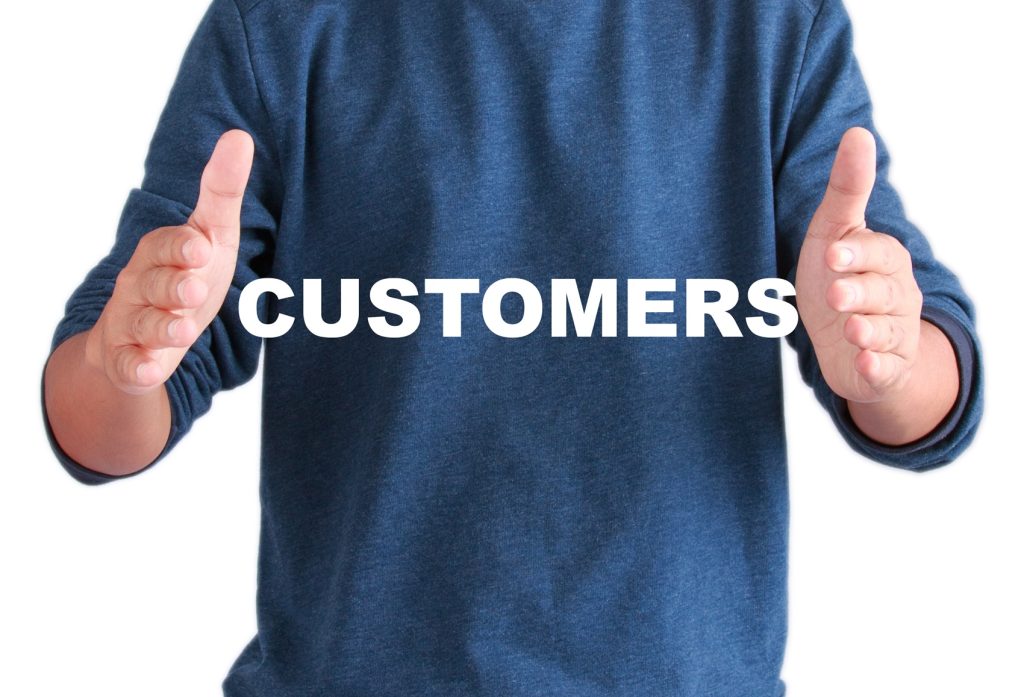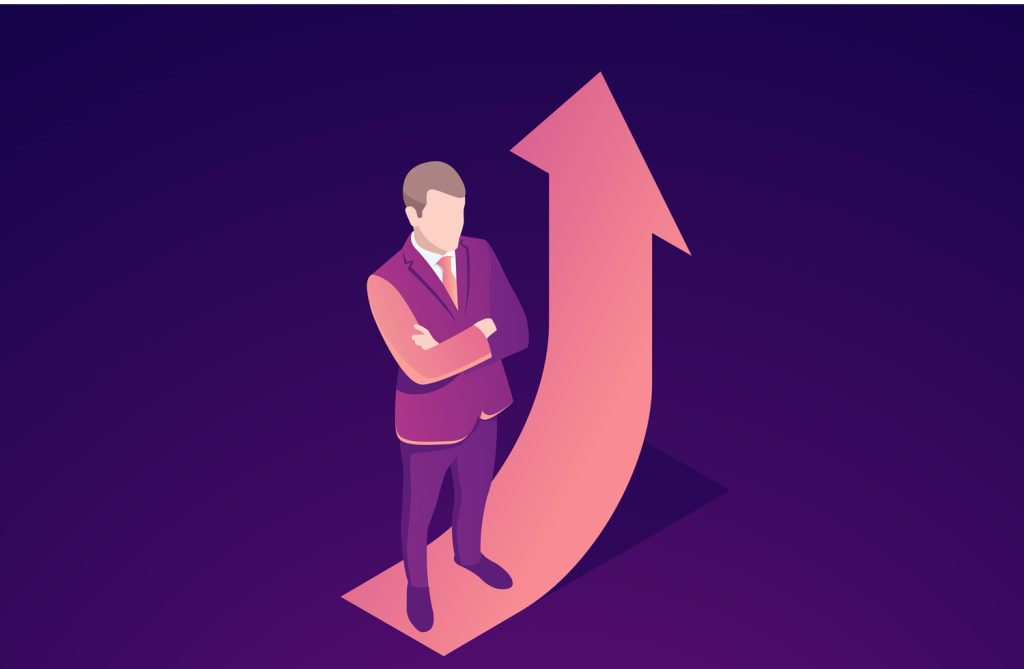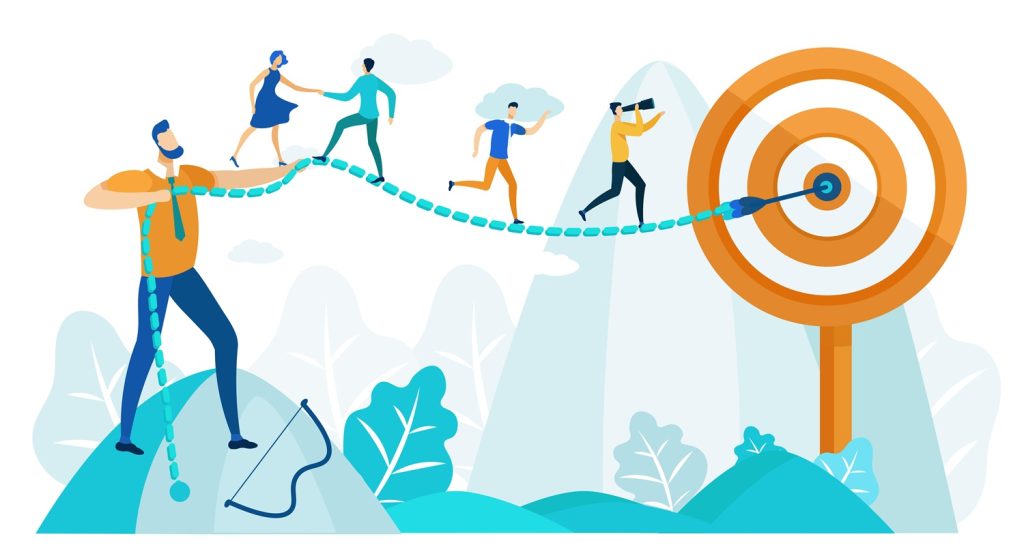
A winning mindset in business growth revolves around prioritizing the needs and satisfaction of clients. This mindset encourages continuous improvement, adaptability, and a proactive approach to solving client challenges. With this mindset, embrace challenges and find ways to address them proactively. Ultimately, a winning mindset aligns your business success with the client success, driving mutual growth and long-term partnerships.
#nilakantasrinivasan-j #canopus-business-management-group #B2B-client-centric-growth

In client centric business growth, setting boundaries plays a pivotal role. Boundaries define the scope of services, expectations, and communication, ensuring clarity and trust between a business and its clients. They help manage workloads, prevent burnout, and maintain high-quality service. By clearly outlining what can and cannot be done, businesses can focus on their core competencies, leading to more efficient operations and satisfied clients. Effective boundaries also foster a professional environment where respect and mutual understanding are paramount, ultimately driving sustainable growth.
#nilakantasrinivasan-j #canopus-business-management-group #B2B-client-centric-growth

In client centric business growth, brevity is paramount. Clear, concise communication fosters trust and efficiency, key in building strong client relationships. By getting to the point quickly, businesses can demonstrate respect for the client’s time and attention, reducing misunderstandings and enhancing clarity. This, in turn, accelerates decision-making processes, driving faster results and higher client satisfaction. Brevity also highlights a company’s professionalism and focus, making interactions more impactful and memorable. In a fast-paced world, the ability to communicate effectively and succinctly is a significant competitive advantage, paving the way for sustained business growth.
#nilakantasrinivasan-j #canopus-business-management-group #B2B-client-centric-growth

In the pursuit of client centric business growth, endurance epitomizes the unwavering commitment to consistently deliver value despite challenges. It embodies the relentless dedication to serve clients, adapting and evolving with their needs. Endurance transforms adversity into opportunity, fostering trust and loyalty. It is about maintaining a steadfast mindset, consistently putting in efforts, and demonstrating resilience in the face of obstacles. By enduring through trials and maintaining unwavering client focus, businesses can achieve sustained growth and forge enduring relationships that propel them to greater heights.
#nilakantasrinivasan-j #canopus-business-management-group #B2B-client-centric-growth

Expressing gratitude to clients goes beyond just a courteous gesture; it embodies the essence of strong and lasting business relationships.
A heartfelt thank you acknowledges their trust and loyalty, and reinforces the value they bring to your business. Clients feel appreciated when their contributions are recognized and thus encouraging ongoing engagement. In a world of transactions, gratitude transforms routine interactions into meaningful relationships. The trick is bringing in creative ways of expressing your gratitude.
#nilakantasrinivasan-j #canopus-business-management-group #B2B-client-centric-growth

Prioritizing the client’s needs ensures that every interaction is meaningful and impactful. By deeply understanding their preferences and challenges, businesses can tailor their services to create unparalleled experiences. This is truly the spirit of client-centric approach that fosters loyalty and trust. In a world where choice is abundant, being genuinely client-focused sets a company apart, making every engagement significant and memorable.
#nilakantasrinivasan-j #canopus-business-management-group #B2B-client-centric-growth

Unlocking growth and building meaningful connections are two powerful pursuits that often go hand-in-hand. When we seek personal and professional growth, we inevitably encounter opportunities to connect with others in meaningful ways. By fostering genuine relationships, we create a network of support and collaboration that propels us forward. This synergy of shared experiences and mutual encouragement nurtures both individual development and collective success. Embracing a mindset of growth and connection creates a ripple effect of positive change.
#nilakantasrinivasan-j #canopus-business-management-group #B2B-client-centric-growth #James-Cash-Penney

When we promise something to a client and we are still working on it, because it has taken more time than estimated, we feel that we’re so close the completely and submitting it, so let’s stretch, speed up and hand over the perfect deliverable even if it takes a little more time.
The perspective we need to gain is the possible emotions the client is going thro when it’s delayed and there’s no update from us.
Proactively letting them know there’s a small delay will in fact build more trust in Client Centricity
#nilakantasrinivasan-j #canopus-business-management-group #B2B-client-centric-growth #ClientCentricity

In the realm of handling clients in #B2B businesses like #manufacturing, #Industrial, #IT, #ITES, Tech, Telecom & other services, a vital lesson emerges from the transient nature of all things like deliveries, orders, escalations, daily interactions and heated moments. This “Client Centricity: Transient lesson” underscores the importance of cherishing prosperous moments and relishing them to the utmost with your colleagues and your clients. A true #clientcentric journey in B2B is about making it a practice to commemorate the small successes of your organization and your clients’ (though you may not be part of it). Simultaneously, during the challenging phases, it’s crucial to remind yourself that difficulties are not perpetual. Just as clouds eventually yield to the sun’s radiance, adversities too shall pass. But at the end of it, your relationship with your client will be stronger. So nurture patience and maintain faith in the process, knowing that brighter days are on the horizon.
#nilakantasrinivasan-j #canopus-business-management-group #B2B-client-centric-growth
Find how you often go wrong in Client Relationship Management & download Leader’s check sheet
The fall of Byju’s, once hailed as India’s ed-tech unicorn, started with its rapid expansion during the COVID-19 pandemic, which led to cash-flow problems. Now, everyone says the company overestimated its ability to manage such rapid growth without fully understanding the risks. But a few years ago, they were regarded as the daredevils of unicorns.
Putting aside the issues of financial mismanagement and other aspects, I wish to emphasize an underlying psychological phenomenon: a cognitive bias called the Dunning-Kruger Effect.
Byju’s is not alone in this game. According to the IBM Institute for Business Value and Oxford Economics, around 90% of Indian startups fail within the first five years.
And it’s not just startups. Google’s recent streak of mediocre performance, including Gemini, and even AstraZeneca’s withdrawal of Covid vaccines are signs of the Dunning-Kruger Effect. So what is this phenomenon?
Dunning-Kruger Effect

It refers to a cognitive bias where people with low ability in a particular area tend to overestimate their competence, while those with high ability may underestimate their competence.
Psychologists Dunning and Kruger discovered this phenomenon in 1999. It stems from the inability to objectively recognize one’s own incompetence.
It is quite common to see kids overestimate their ability to achieve a goal. And it’s not just kids; even politicians often fall into this trap. With as many as 64 countries in the world having elections in 2024, it’s something to watch out for.
In this world of opportunities, thinking big and taking risks are considered success mantras. Professionals are bombarded with data, opinions, and expertise that often lead to overconfidence, where individuals assume they know more than they actually do. Social media platforms and influencers amplify self-assuredness.
And then, professionals often feel pressure to project confidence. Admitting ignorance or seeking help may be perceived as weakness, leading to overestimation of abilities.
Another significant problem is assuming skills in one area automatically translate to expertise in another.
In essence, it is not easy for professionals in today’s world to objectively assess their competence or that of their organization’s.
So, in today’s world, it’s unavoidable to be Dunning-Kruger biased 🙂
11 Dunning-Kruger Effect Traps in Client Relationship Management
When it comes to my forte, Client Relationship Management and Client Centric Business Growth, here are a few pitfalls to watch out for:
- Over-promising to clients: Making commitments that exceed the organization’s capabilities or resources can lead to dissatisfaction and erode trust with clients. Sometimes this is done in mere impulse.
- Creating unrealistic and aggressive plans: Setting overly ambitious targets or timelines without considering potential challenges or constraints can result in missed goals and disappointment for both the organization and its clients.
- Selling a grandeur vision: Like real estate agents, you can sell the future state, assuming everything will fall into place at the right time, but it need not, and that can become a significant disappointment in client relationships.
- Setting unrealistic targets for the team: Unrealistic targets can lead to stress, burnout, and a focus on short-term results over long-term client satisfaction.
- Making too many assumptions: Assuming without sufficient evidence can lead to misunderstandings and misaligned expectations with clients.
- Multitasking: Attempting to juggle multiple tasks simultaneously can lead to decreased focus, reduced quality of work, and increased chances of errors.
- Assuming the client already trusts you enough: Trust is earned through consistent actions and transparent communication over time. Assuming trust merely because you got the contract, particularly without actively cultivating it, can lead to complacency and neglect of the client relationship.
- Overestimating the team’s capabilities: Overconfidence in the team’s abilities can lead to taking on projects beyond their capacity, resulting in delays, quality issues, or failure to deliver on promises.
- Underestimating competition: Ignoring or underestimating competitors can result in missed opportunities and a failure to differentiate the organization’s offerings effectively. It’s important to conduct regular competitive analysis and stay informed about industry trends to remain competitive in the marketplace.
- Oversimplification of the situation at hand: Complex client issues require thorough analysis and thoughtful consideration. Oversimplifying problems can lead to superficial solutions that fail to address underlying challenges effectively.
- Overly relying on outsourcing: While outsourcing can provide valuable expertise and resources, relying too heavily on external partners can lead to a loss of control over quality and communication
As a leader, you can go wrong in Client Relationship Management and fall for the Dunning-Kruger Effect.
Download Client Centric Decision Making Checklist and avoid Dunning-Kruger Traps
#nilakantasrinivasan-j #canopus-business-management-group #B2B-client-centric-growth
Every employee should embrace the following 7 acts of client centric professional. This will help in delivering superior client service and meeting company goals

1. Understand Clients with Empathy
Understanding clients with empathy is the first act of client centric professional and is important for the growth of any organization because it helps to build strong and lasting relationships with them. When you understand and empathize with your clients, you are able to respond to their needs, wants and concerns in a meaningful and personal way. This helps to establish trust and creates a sense of loyalty, which is crucial for maintaining and growing your client base.
2. Take Ownership for their needs
Taking ownership of a customer’s needs is the 2nd act of a client centric professional because it demonstrates a commitment to providing exceptional customer service. By taking ownership of a customer’s needs, the professional is signaling that they are invested in resolving the customer’s problem or meeting their requirements. This helps to build trust and confidence with the customer and can lead to improved customer satisfaction and loyalty.
3. Establish Agile, Fair, Scalable, Transparent and Sustainable Processes
Processes play a critical role in becoming client-centric because they help organizations to understand, manage and deliver value to their clients. . By streamlining operations, mapping the customer journey, implementing feedback mechanisms, and supporting continuous improvement, companies can build a culture that is focused on meeting the needs of their clients.
4. Collaborate internally & externally
Collaboration internally & externally plays a critical role in improving client centricity by enabling organizations to align their efforts towards meeting the needs and expectations of their clients. By working together, organizations can develop a more comprehensive understanding of their clients, provide more effective and personalized solutions, and continuously improve their client-centric approach.
5. Consistently deliver on promises
Consistently delivering on promises is critical in client centricity because it builds trust, demonstrates reliability, increases satisfaction, enhances reputation, and mitigates risk.
6. Continuously improve things for the clients
Continuously improving things for clients requires a commitment to ongoing learning, flexibility, and adaptability in the face of challenges and uncertainty. It may require businesses to invest in resources, such as staff, technology, or data, to support their improvement efforts.
7. Serve with passion
Serving with passion means that an individual is deeply committed to delivering high-quality service and meeting the needs of their customers. This attitude is a critical component of being client-centric, which means that an individual is focused on understanding and meeting the needs of their clients.
We conduct interactive “7 Acts of Customer Centric Professional” workshop in Chennai, Bangalore, Mumbai, Delhi and across India. To know more about the workshop, visit our page
#nilakantasrinivasan-j #canopus-business-management-group #B2B-client-centric-growth
Sign-up for collaborat newsletter
